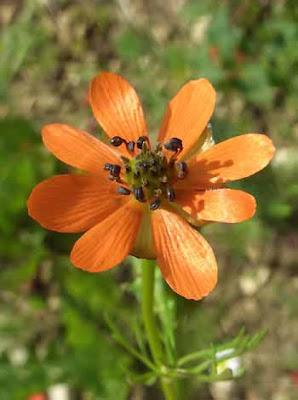
Family: Acanthaceae
Species: Thunbergia alata
Boy. ex Sims
dt Name: Black-eyed Susan
your name, the Black-Eyed Susan for their orange-yellow flowers with a black dot in the middle. This annual climbing plant flowers into a sunny, sheltered locations from July until early November and entwines with the right help climbing as high as two meters.
If they are planted in a bucket, be sure to to ensure good drainage to avoid jamming the wet.
